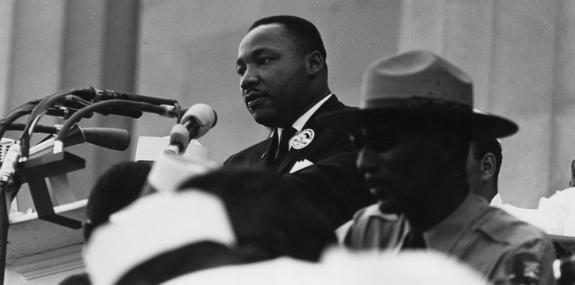
- Details
- By USET
Guest Opinion. January 16th is not only a day that asks us to pause and reflect on Dr. Martin Luther King, Jr’s. legacy, it also implores our nation to recognize and recommit to the basic foundation that the United States has held fast to for the last 247 years- that one person has the inherent right to add value to society through whatever means they find in themselves. Dr. King’s legacy reverberates throughout the nation and drives us all to reflect and address our moral consciousness, beyond what physically or spiritually is seen to the outside. This requires us to take that deep look into our own systems, whether ingrained or in-development and truly evaluate the content of our character and how that drives our actions and interactions towards and between one another.
We are all tasked to pause and look at one another in a lens we may be unfamiliar with to understand what was needed while Dr. King was alive is also what is still needed across our nation today. We must be willing to recommit ourselves to the recognition of injustices and that subsequent dialogue and advocacy surrounding these issues is still necessary. Often, we may think that the development of humanity ends in a flatline, when the reality is that the evolution of humanity is relative to continuous motion and continuous progress. To continue to embrace the lifework of Dr. King, is to open ourselves up to uncomfortable situations and conversations that occur on the journey towards greater equality. To explore this is to explore a greater meaning to humanity itself and a more inclusive, equitable world for generations to come.
It is undeniable that Dr. King lived during a time of unprecedented turmoil. We often characterize the Civil Rights Movement as when only one segment of the population was severely affected-while reports and testimony from this time capture that the entire nation faced a reckoning that, at the time, seemed unresolvable. What we can draw from Dr. King’s lifelong work is that conversation, retrospect, and the aspiration of mutual respect amongst one another, can cross borders and intersect generations, race, identity, and backgrounds. Therefore, as a nation, we recognize a man who dedicated his life to opening the dialogue surrounding issues like racism, prejudice, and the effects of inequality on every person’s life. Dr. King and many others laid the foundation for the work of future social change makers, that build off these advocacy efforts.
What we have discovered is the ability to reinforce that a world in which prejudice is not the center-point to humanity’s motives is attainable and we should let our focus be on respect, accountability, and positive-change. It is not that Dr. King thought the nation would change overnight, but that it was time to recognize that change was needed. That a nation, which he writes was “born in genocide by embracing the doctrine that the original American, the Indian, was an inferior race” and whose national development is rooted in prejudice, still has the ability to course correct and dismantle the ingrained prejudicial and paternalistic systems currently at work This will ultimately result in the creation of a world that future generations will inherit where limitations would not come from their environment, instead focusing on creating an environment that reinforces the inherent value we all hold.
Dr. King states that “Injustice anywhere is a threat to justice everywhere”-These solemn words should guide our actions and efforts for the years to come.
Established in 1969, the United South and Eastern Tribes, Inc. (USET) is a non-profit, inter-Tribal organization serving 33 federally recognized Tribal Nations from the Northeastern Woodlands to the Everglades and across the Gulf of Mexico.
Help us defend tribal sovereignty.
At Native News Online, our mission is rooted in telling the stories that strengthen sovereignty and uplift Indigenous voices — not just at year’s end, but every single day.
Because of your generosity last year, we were able to keep our reporters on the ground in tribal communities, at national gatherings and in the halls of Congress — covering the issues that matter most to Indian Country: sovereignty, culture, education, health and economic opportunity.
That support sustained us through a tough year in 2025. Now, as we look to the year ahead, we need your help right now to ensure warrior journalism remains strong — reporting that defends tribal sovereignty, amplifies Native truth, and holds power accountable.
 The stakes couldn't be higher. Your support keeps Native voices heard, Native stories told and Native sovereignty defended.
The stakes couldn't be higher. Your support keeps Native voices heard, Native stories told and Native sovereignty defended.
Stand with Warrior Journalism today.
Levi Rickert (Potawatomi), Editor & Publisher

